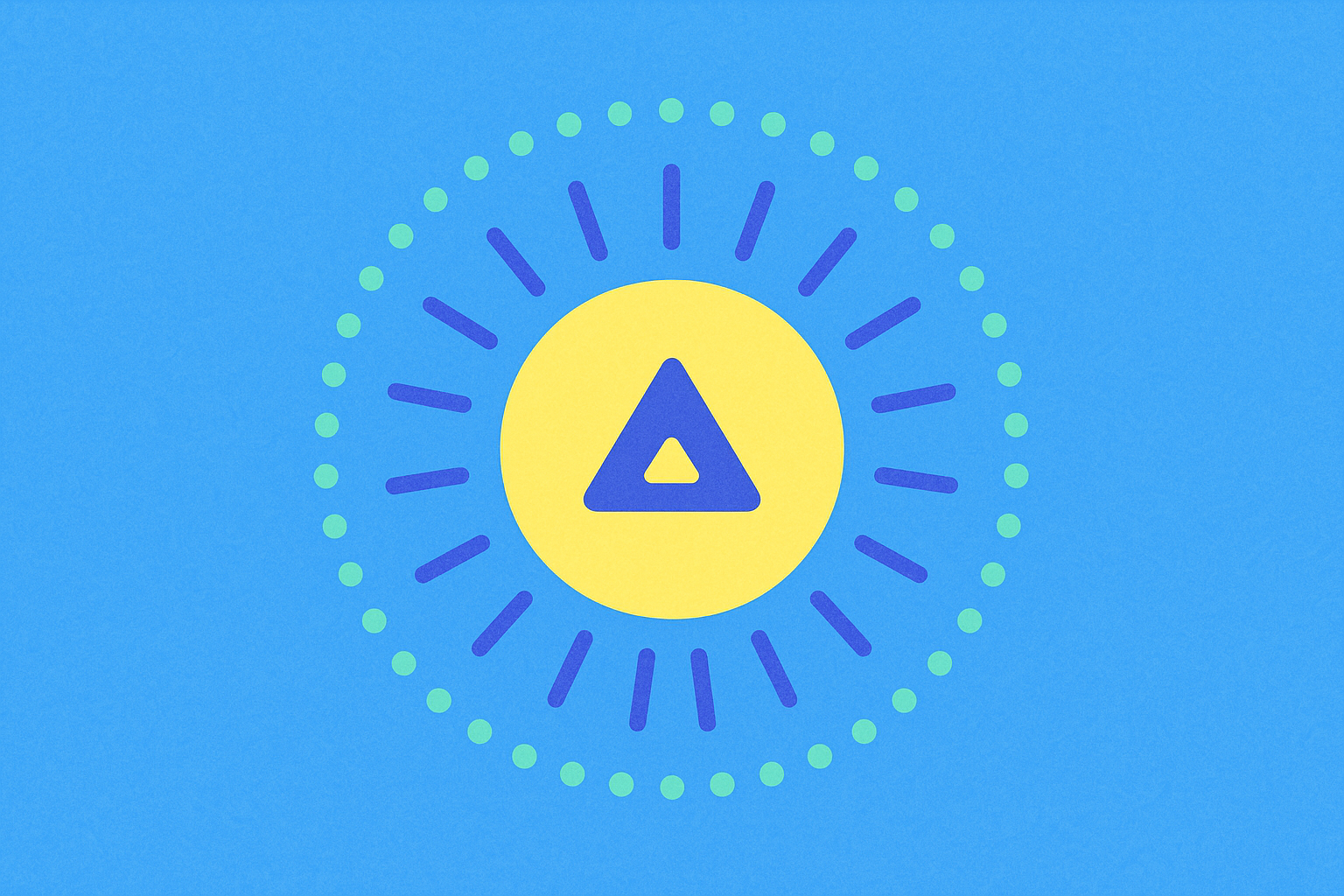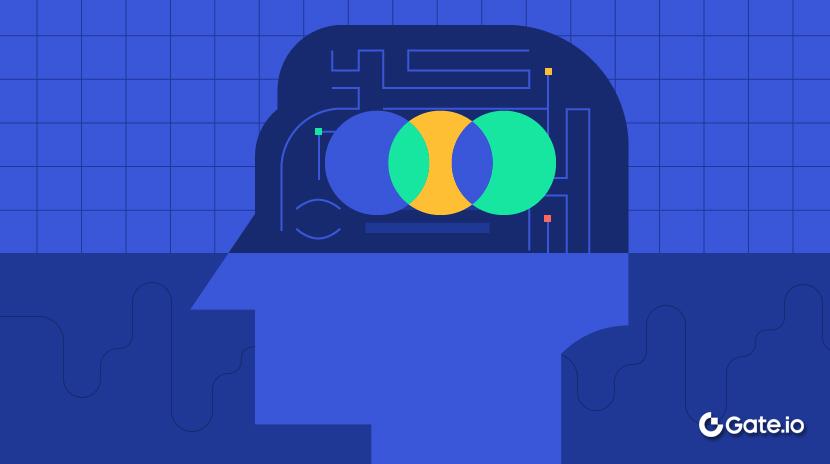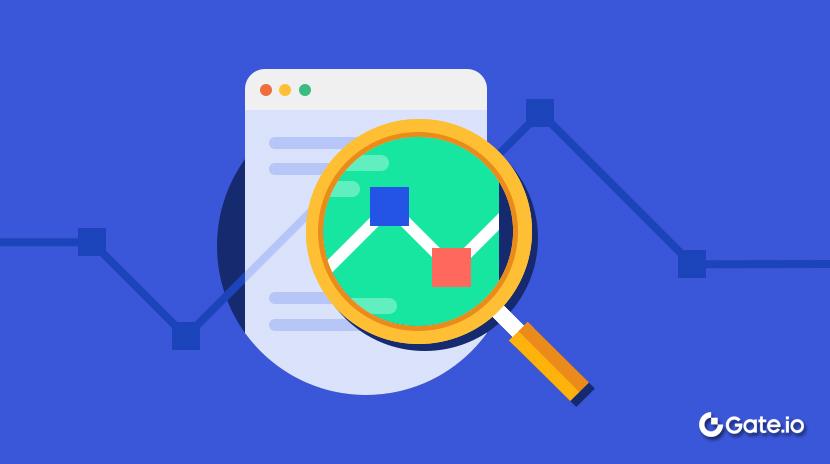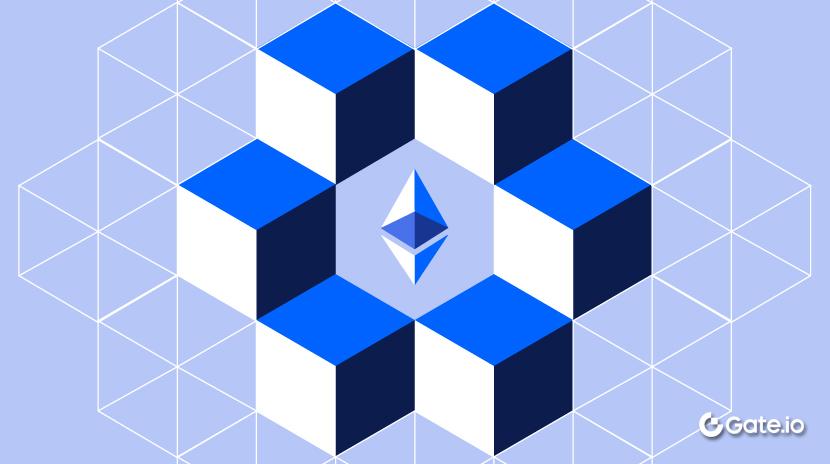Ví Daedalus

Ví Daedalus là gì?
Ví Daedalus là ví full-node dành cho máy tính của Cardano, được thiết kế để xác thực cục bộ và tự quản lý khóa cá nhân. Người dùng có thể gửi, nhận ADA, quản lý tài sản gốc Cardano, và ủy quyền staking trực tiếp từ thiết bị của mình.
Khác với các ví nhẹ thông thường, Daedalus vận hành một node Cardano hoàn chỉnh trên máy tính, tải về toàn bộ sổ cái blockchain và tự xác thực. Quá trình này giống như tự kiểm tra toàn bộ sổ cái tại nhà, mang lại bảo mật và quyền tự chủ cao hơn, nhưng đòi hỏi nhiều thời gian và tài nguyên phần cứng.
Tại sao nên chọn Ví Daedalus thay vì ví nhẹ?
Ví Daedalus nổi bật nhờ xác thực trực tiếp trên thiết bị và kiểm soát hoàn toàn cục bộ. Đây là lựa chọn tối ưu cho người dùng ưu tiên bảo mật, quản lý số tiền lớn lâu dài và sẵn sàng chờ đồng bộ hóa lâu hơn trên máy tính.
Các ví nhẹ—như tiện ích trình duyệt hoặc ứng dụng di động—thường dựa vào các node từ xa để cung cấp dữ liệu blockchain. Mặc dù mang lại trải nghiệm nhanh và tiện lợi, việc xác thực giao dịch chuyên sâu lại được thực hiện ở nơi khác. Daedalus thì xác thực giao dịch ngay trên thiết bị, giảm phụ thuộc vào bên thứ ba. Điều này phù hợp với người dùng sở hữu lượng tài sản lớn hoặc yêu cầu mức độ tin cậy cao. Đến năm 2025, Cardano cũng phát triển các lựa chọn ví nhẹ chính thức, nhưng Daedalus vẫn là giải pháp full-node trên máy tính được ưa chuộng.
Ví Daedalus hoạt động như thế nào?
Daedalus vận hành bằng cách chạy một node Cardano đầy đủ trên máy tính—tải về và xác minh từng khối để đảm bảo tính xác thực của giao dịch và số dư.
Cardano sử dụng mô hình UTXO (Unspent Transaction Output), tương tự như “tiền thừa”: mỗi lần chi tiêu sẽ tiêu tốn một số “biên nhận” và tạo ra biên nhận mới. Daedalus kiểm tra các biên nhận này ngay trên thiết bị, tính toán số dư mà không cần dịch vụ bên ngoài. Ưu điểm là kiểm toán không cần tin cậy, nhưng bất lợi là thời gian đồng bộ ban đầu lâu và tiêu tốn nhiều dung lượng ổ đĩa, băng thông mạng.
Cách cài đặt và đồng bộ Ví Daedalus lần đầu tiên?
Để cài đặt Ví Daedalus, tải phần mềm dành cho máy tính từ nguồn chính thức, làm theo hướng dẫn cài đặt và hoàn tất đồng bộ blockchain ban đầu. Thời gian thực hiện tùy thuộc vào tốc độ mạng và cấu hình thiết bị.
Bước 1: Truy cập website chính thức để tải phiên bản phù hợp với hệ điều hành của bạn (Windows, macOS hoặc Linux). Chỉ tải từ liên kết chính thức để tránh trang giả mạo hoặc phần mềm độc hại.
Bước 2: Cài đặt và khởi chạy Ví Daedalus, cấp quyền truy cập mạng và bộ nhớ cục bộ. Sử dụng nguồn điện ổn định và kết nối internet đáng tin cậy trong quá trình thiết lập.
Bước 3: Chờ quá trình đồng bộ ban đầu hoàn tất. Khi dữ liệu blockchain tăng lên, quá trình này có thể mất nhiều thời gian và yêu cầu hàng chục gigabyte dung lượng ổ đĩa; ổ SSD và kết nối mạng dây sẽ ổn định hơn.
Bước 4: Sau khi đồng bộ xong, làm theo hướng dẫn để tạo ví mới hoặc khôi phục ví cũ. Nếu tạo ví mới, ghi lại cụm từ khôi phục (mnemonic seed phrase); nếu khôi phục, nhập cụm từ này để lấy lại tài sản.
Ví Daedalus xử lý chuyển ADA và quản lý tài sản như thế nào?
Ví Daedalus quản lý ADA và tài sản gốc bằng địa chỉ blockchain để nhận thanh toán và gửi giao dịch. Cụm từ mnemonic của bạn là “khóa chủ”, cho phép khôi phục tài sản trên bất kỳ phần mềm khách hỗ trợ nào.
Nhận: Tạo địa chỉ nhận trong Daedalus (thường bắt đầu bằng “addr1”). Chia sẻ địa chỉ này với người chuyển tiền hoặc dùng để rút từ sàn giao dịch.
Gửi: Nhập địa chỉ người nhận và số tiền ở trang gửi, kiểm tra phí giao dịch và tóm tắt, sau đó ký và phát đi giao dịch. Việc ký tương đương với đóng dấu bằng khóa cá nhân của bạn.
Quản lý tài sản: Cardano hỗ trợ token gốc và NFT. Daedalus hiển thị và chuyển các tài sản này trực tiếp—chỉ áp dụng với tài sản trên Cardano; không hỗ trợ trực tiếp Bitcoin, Ethereum hoặc các blockchain khác.
Lưu ý bảo mật: Luôn lưu trữ cụm từ mnemonic ngoại tuyến—tốt nhất là ghi tay và chia nhỏ ở các nơi an toàn. Bảo vệ máy tính khỏi phần mềm độc hại, lừa đảo; không nhập cụm từ khôi phục vào website hoặc ứng dụng chat.
Cách ủy quyền staking nhận thưởng ADA trên Ví Daedalus?
Daedalus tích hợp chức năng ủy quyền staking. Việc ủy quyền giống như “bỏ phiếu” số dư ADA cho một pool staking để hỗ trợ xác thực khối; tài sản vẫn nằm trong ví—chỉ có lựa chọn staking được ghi nhận trên chuỗi.
Bước 1: Mở trung tâm staking và duyệt các pool khả dụng. Pool là “nhóm duy trì mạng lưới” với mức phí và lịch sử hiệu suất khác nhau.
Bước 2: Chọn pool mục tiêu và bắt đầu ủy quyền. Mạng lưới phân phối phần thưởng theo từng kỳ (epoch), mỗi epoch Cardano thường kéo dài khoảng năm ngày.
Bước 3: Chờ phần thưởng được phân phối. Việc ủy quyền ban đầu có thể bị trễ vài epoch; sau đó, phần thưởng sẽ trả theo từng epoch và bạn có thể chuyển pool bất kỳ lúc nào.
Lưu ý: Lợi suất hàng năm cao không đảm bảo cho hiệu suất tương lai. Theo dõi mức độ bão hòa pool, phí và độ tin cậy; tránh tập trung vào một pool lớn duy nhất.
Cách rút ADA từ Gate về Ví Daedalus & lưu ý bảo mật?
Bạn có thể chuyển ADA từ sàn Gate về địa chỉ ví Daedalus, chuyển tài sản từ sàn tập trung sang tự quản lý. Các bước quan trọng là xác nhận mạng, định dạng địa chỉ và trạng thái giao dịch.
Bước 1: Sao chép địa chỉ nhận từ Daedalus (thường bắt đầu bằng “addr1”).
Bước 2: Đăng nhập Gate, vào mục rút tài khoản giao ngay, chọn “Cardano (ADA)” làm mạng, dán địa chỉ, nhập số tiền, kiểm tra phí và thời gian dự kiến nhận.
Bước 3: Sau khi gửi lệnh rút trên Gate, theo dõi lịch sử rút tiền tại đó và chờ xác nhận giao dịch trong Daedalus sau khi đồng bộ cập nhật số dư.
Lưu ý bảo mật:
- Chỉ sử dụng ứng dụng hoặc website Gate chính thức; kích hoạt xác thực hai yếu tố và danh sách trắng rút tiền.
- Thử chuyển số tiền nhỏ trước để xác nhận địa chỉ và mạng trước khi giao dịch lớn.
- Không xử lý cụm từ mnemonic trên mạng công cộng hoặc thiết bị không tin cậy; sau khi rút xong, kiểm tra chi tiết giao dịch trong Daedalus.
Các vấn đề thường gặp & yêu cầu hệ thống của Ví Daedalus
Việc vận hành full-node của Daedalus đòi hỏi phần cứng và kết nối mạng mạnh; đồng bộ hóa ban đầu kéo dài và tiêu tốn nhiều dung lượng ổ đĩa. Nên dùng ổ SSD với dung lượng lớn.
Vấn đề thường gặp:
- Đồng bộ chậm: Kiểm tra độ ổn định mạng và độ chính xác thời gian hệ thống; khởi động lại ứng dụng ví hoặc router nếu cần.
- Yêu cầu nâng cấp: Làm theo hướng dẫn cập nhật chính thức của Daedalus; dùng phiên bản cũ có thể gây lỗi tương thích node.
- Sao lưu & khôi phục: Ghi lại cụm từ mnemonic ngoại tuyến khi tạo ví; khi chuyển máy tính, khôi phục bằng mnemonic, kiểm tra địa chỉ/số dư trước khi xóa dữ liệu cũ.
Ví Daedalus so với các ví Cardano khác ra sao?
Daedalus là ví full-node trên máy tính tập trung vào “xác thực cục bộ + tự quản lý khóa”. Ví nhẹ (như tiện ích trình duyệt) hướng tới “node từ xa + trải nghiệm nhẹ”.
Khác biệt chính gồm:
- Xác thực: Daedalus xác thực cục bộ; ví nhẹ dựa vào dịch vụ từ xa.
- Tài nguyên: Daedalus tiêu tốn nhiều ổ đĩa/băng thông; ví nhẹ hiệu quả hơn.
- Kịch bản sử dụng: Daedalus phù hợp quản lý dài hạn/staking trên thiết bị chuyên dụng; ví nhẹ thích hợp chuyển nhanh và giao dịch hàng ngày.
Đến năm 2025, trải nghiệm ví nhẹ tiếp tục phát triển trong hệ sinh thái Cardano—nhưng Daedalus vẫn phục vụ người dùng cần xác thực nghiêm ngặt qua full-node.
Lời khuyên sử dụng lâu dài & tổng kết
Sử dụng Daedalus lâu dài tập trung vào bảo mật và bảo trì: luôn tải từ nguồn chính thức, sao lưu mnemonic ngoại tuyến, cập nhật phần mềm ví cũng như hệ điều hành thường xuyên, đảm bảo phần cứng/mạng ổn định. Khi giao dịch với Gate—dù nạp hay rút—kiểm tra kỹ địa chỉ/mạng, bắt đầu bằng số tiền nhỏ, bật các thiết lập bảo mật để giảm rủi ro vận hành.
Tóm lại, Daedalus trao quyền xác thực và kiểm soát khóa cho người dùng—phù hợp với người đề cao sự độc lập và minh bạch on-chain. Đổi lại là thời gian đồng bộ lâu và cần bảo trì liên tục. Khi hiểu rõ lựa chọn này và tuân thủ thói quen sử dụng kỷ luật, bạn có thể quản lý tài sản và staking Cardano hiệu quả, an toàn.
FAQ
Yêu cầu hệ thống của Ví Daedalus là gì?
Daedalus cần cấu hình máy tính mạnh do là ví full-node tải/xác minh toàn bộ blockchain Cardano. Phần cứng khuyến nghị gồm CPU đa nhân, tối thiểu 8GB RAM và trên 100GB ổ đĩa. Nếu hệ thống yếu hơn, nên cân nhắc ví nhẹ như Yoroi làm lựa chọn thay thế.
Khóa riêng tư của Ví Daedalus lưu ở đâu—có an toàn không?
Khóa riêng tư trong Daedalus lưu hoàn toàn trên máy tính cá nhân—không bao giờ tải lên máy chủ nào. Tệp ví được mã hóa và yêu cầu mật khẩu truy cập. Luôn đặt mật khẩu mạnh và thường xuyên sao lưu tệp ví ra thiết bị ngoại tuyến để tránh mất do phần mềm độc hại hoặc hỏng phần cứng.
Tại sao khởi động ban đầu của Daedalus lại lâu?
Với vai trò ví full-node, Daedalus phải tải/xác minh toàn bộ lịch sử blockchain Cardano khi khởi chạy lần đầu—quá trình này có thể mất vài giờ hoặc cả ngày. Sau khi đồng bộ lần đầu, các lần cập nhật sau chỉ cần tải khối mới, nhanh hơn nhiều. Để máy hoạt động liên tục hoặc đồng bộ qua WiFi giúp tiết kiệm băng thông.
Nếu gỡ cài đặt Ví Daedalus, tôi có thể khôi phục ADA không?
Chỉ cần bạn lưu cụm từ mnemonic (12 hoặc 24 từ), bạn có thể khôi phục hoàn toàn ví—ngay cả sau khi gỡ cài đặt. Chỉ cần nhập mnemonic vào bất kỳ ví Cardano tương thích nào để lấy lại toàn bộ tài sản. Việc lưu trữ cụm từ này an toàn là rất quan trọng—nên ghi ra giấy và cất nơi an toàn khi tạo ví.
Daedalus có hỗ trợ thiết bị di động không?
Hiện tại, Daedalus chỉ hỗ trợ máy tính Windows, Mac và Linux—không có phiên bản di động. Để quản lý tài sản Cardano trên điện thoại, hãy dùng các ứng dụng ví nhẹ như Yoroi hoặc Nami. Trước khi rút từ Gate về Daedalus, kiểm tra kỹ địa chỉ ví để tránh gửi nhầm.
Bài viết liên quan

Cách thực hiện nghiên cứu của riêng bạn (DYOR)?

Phân tích cơ bản là gì?
